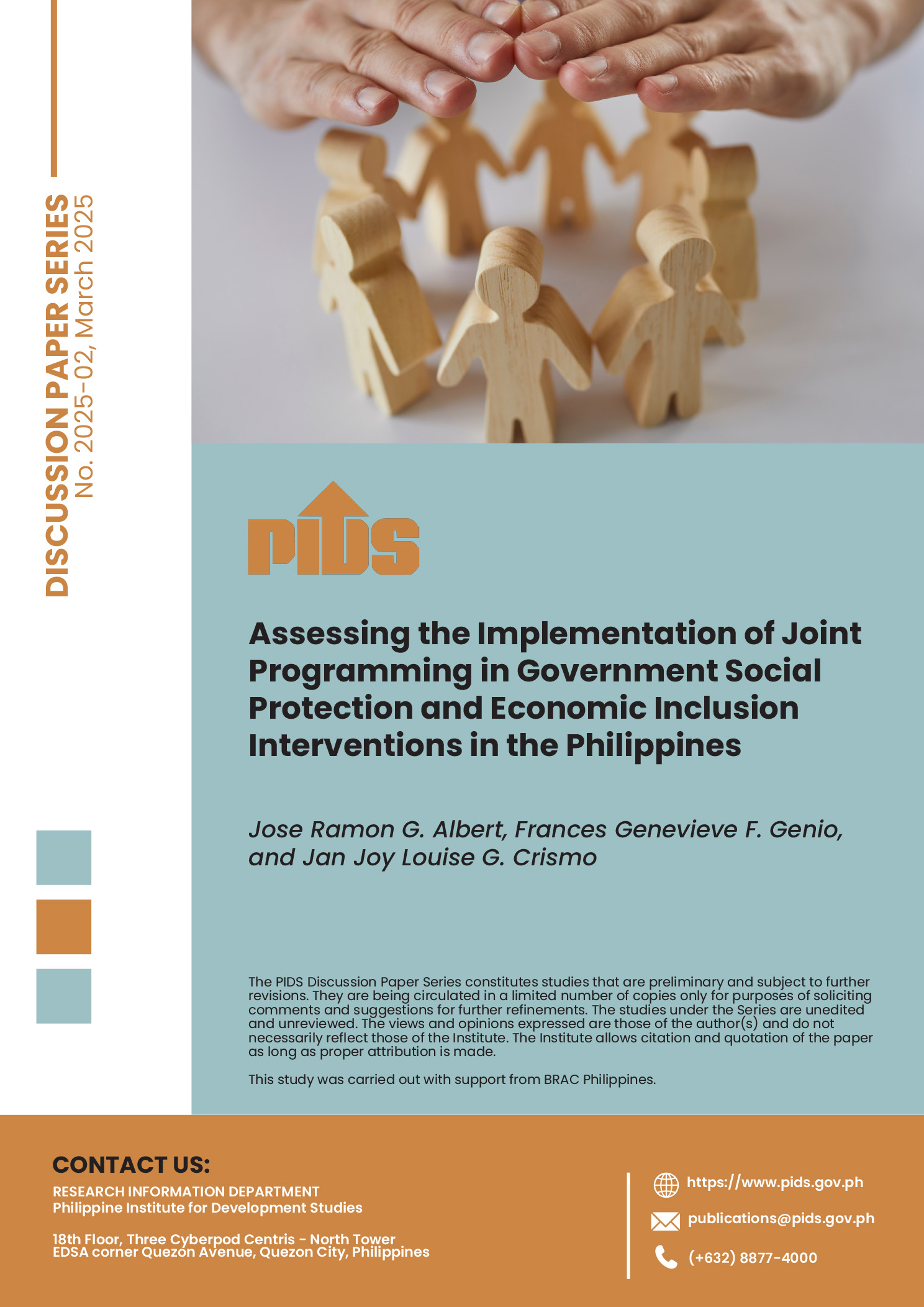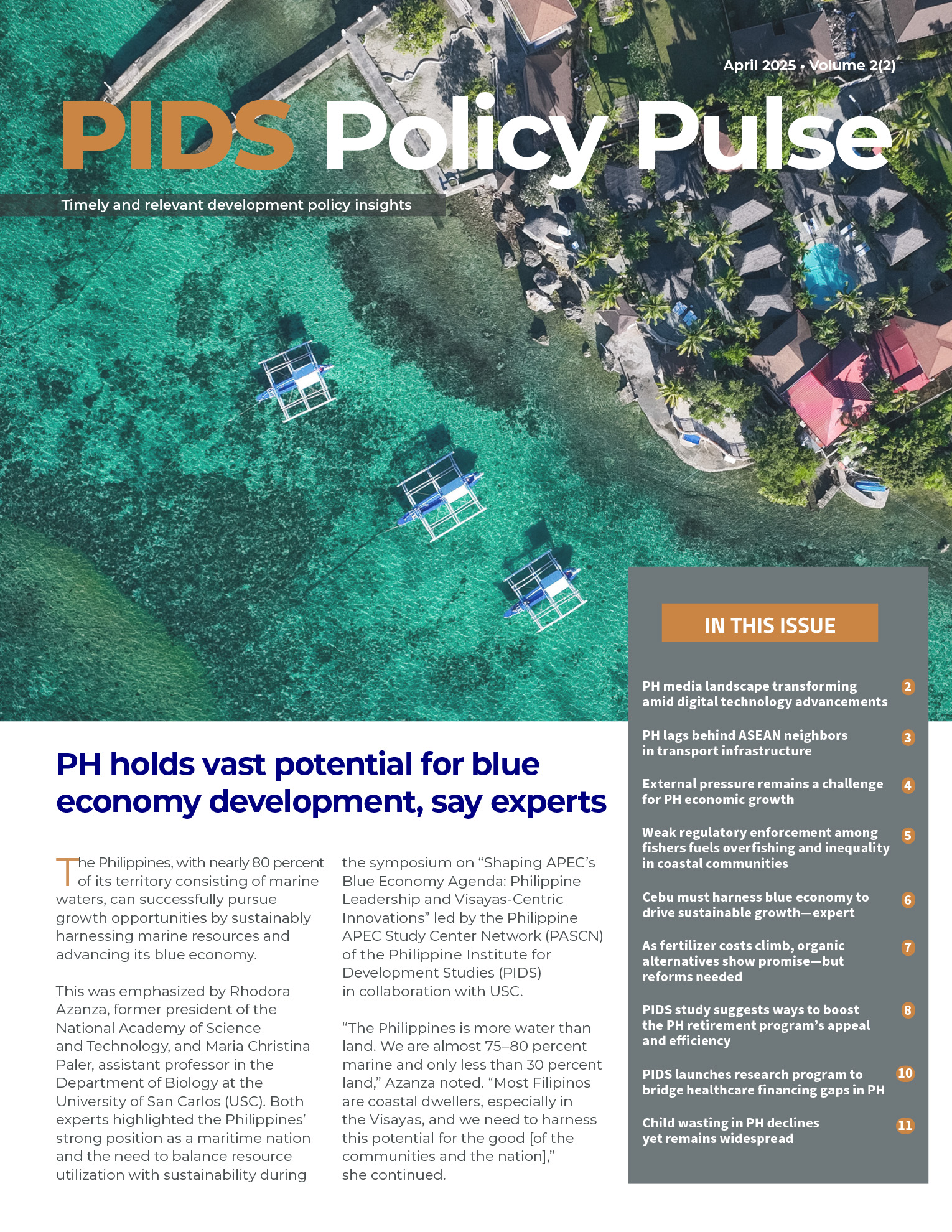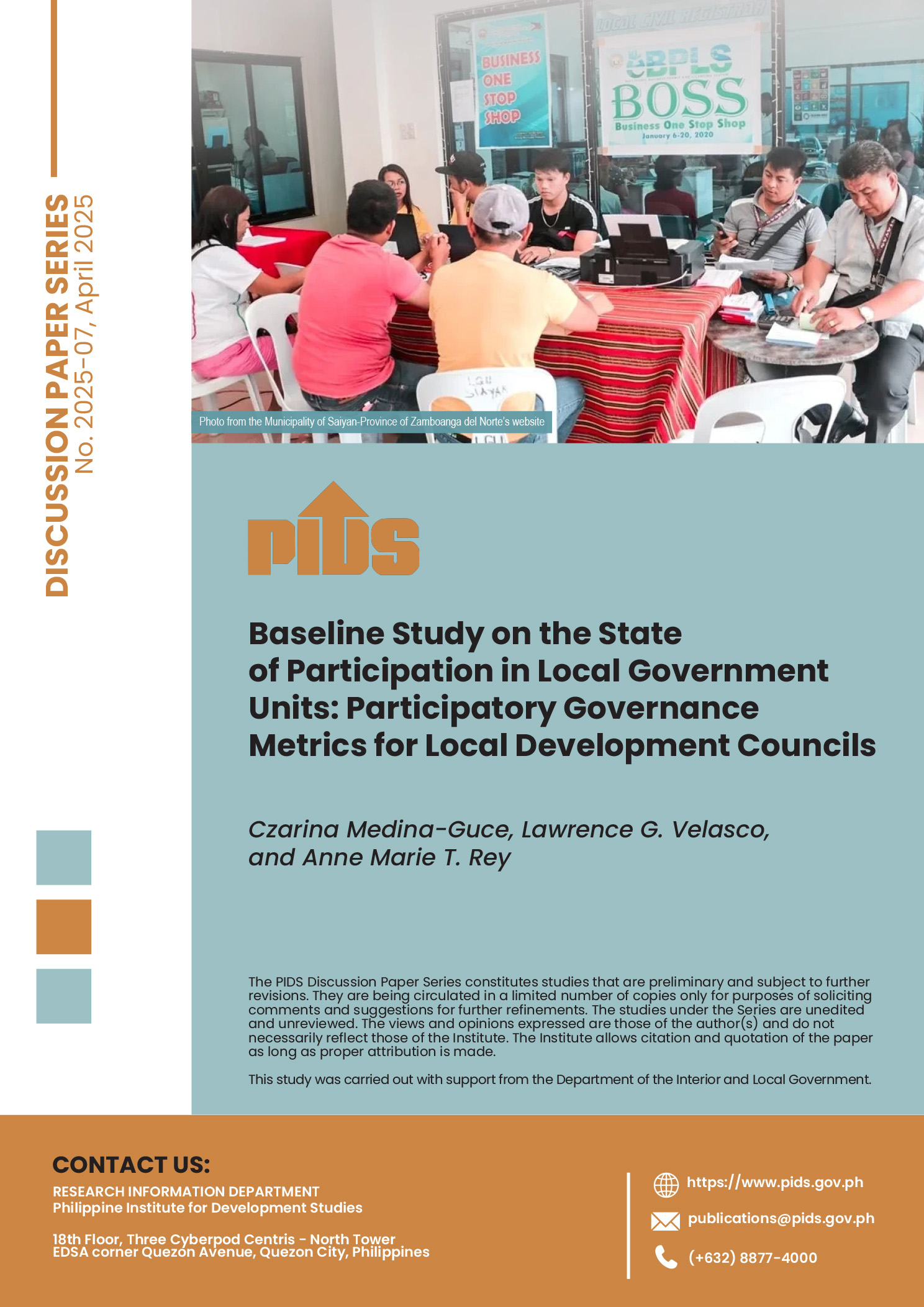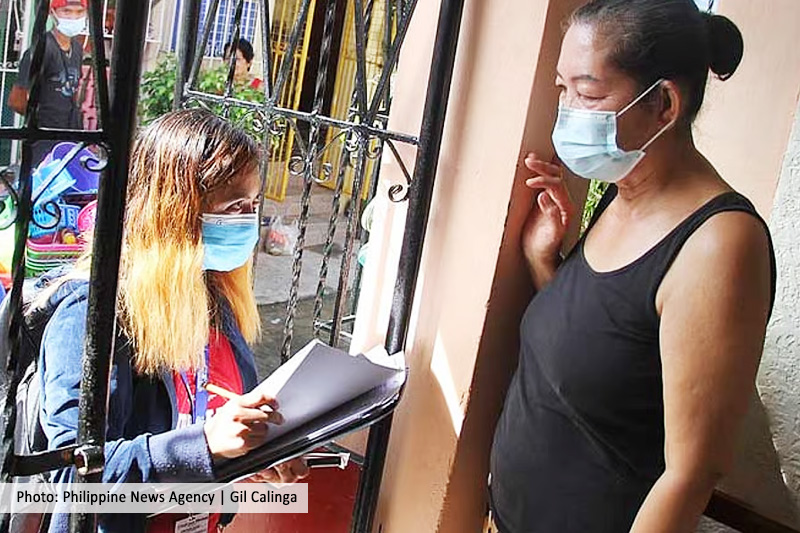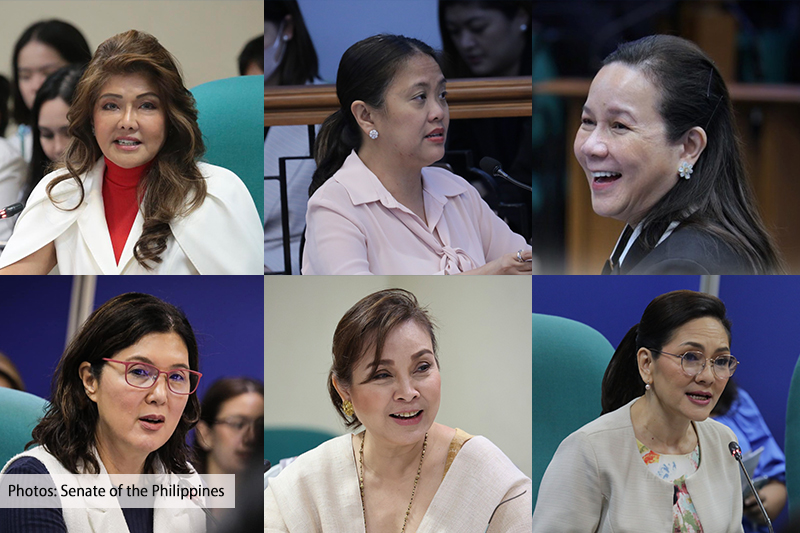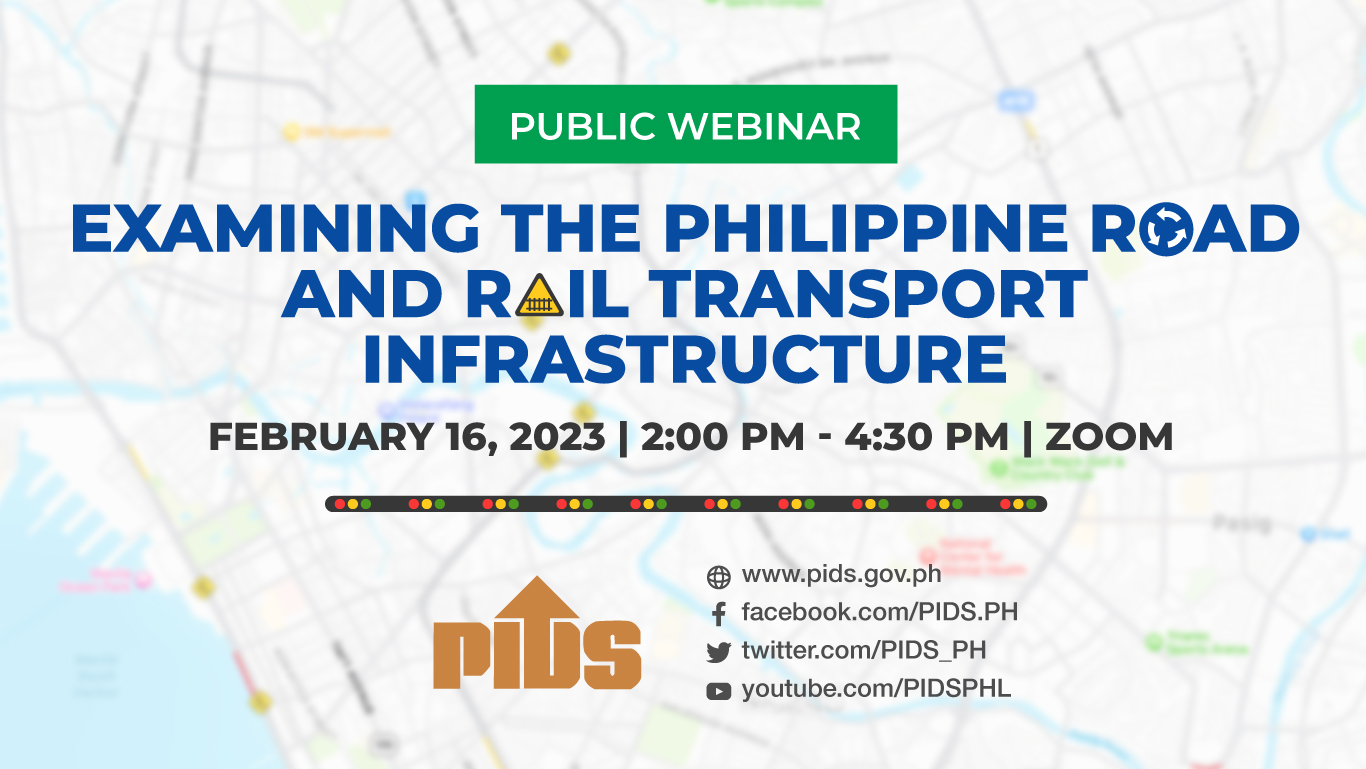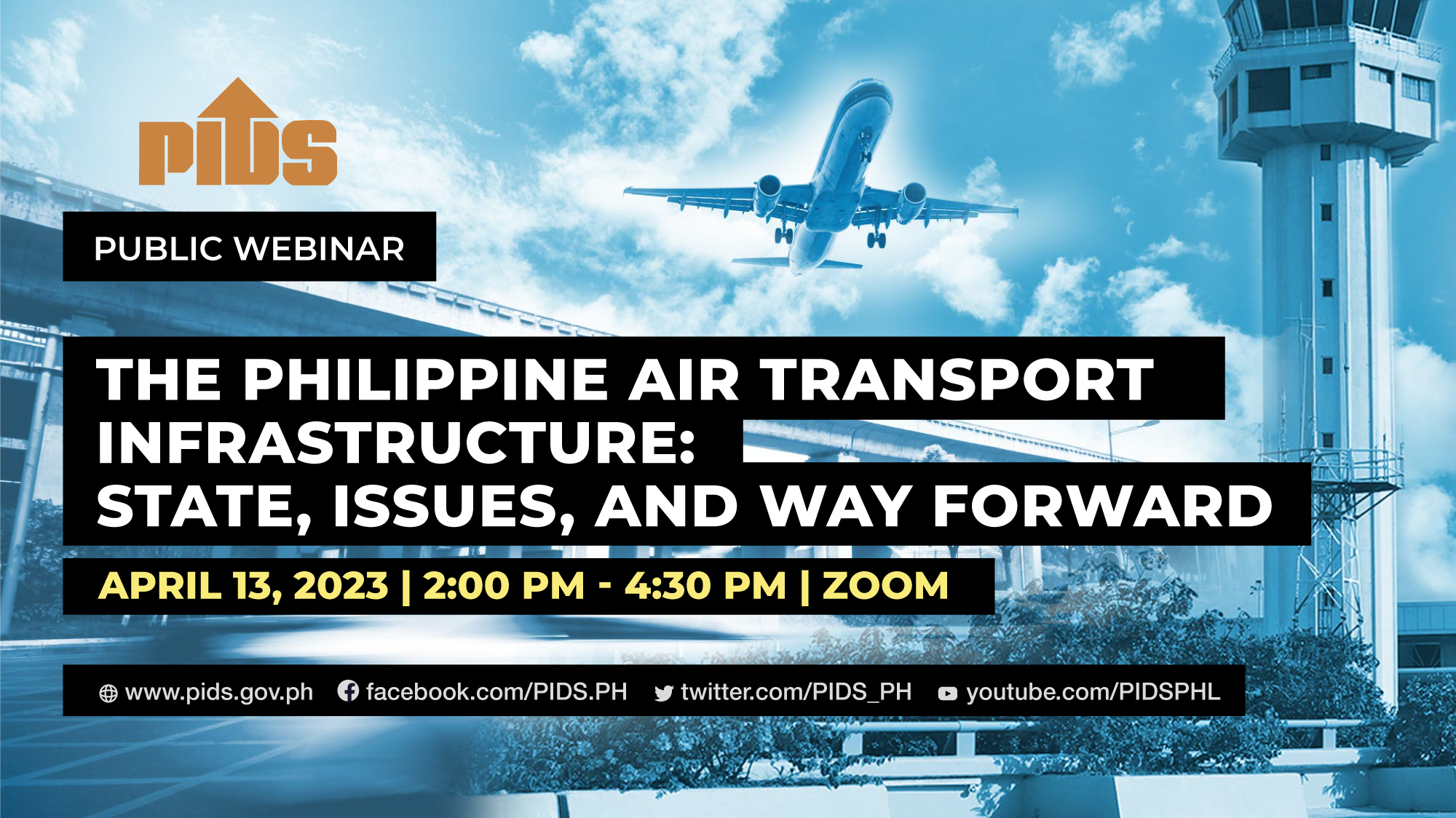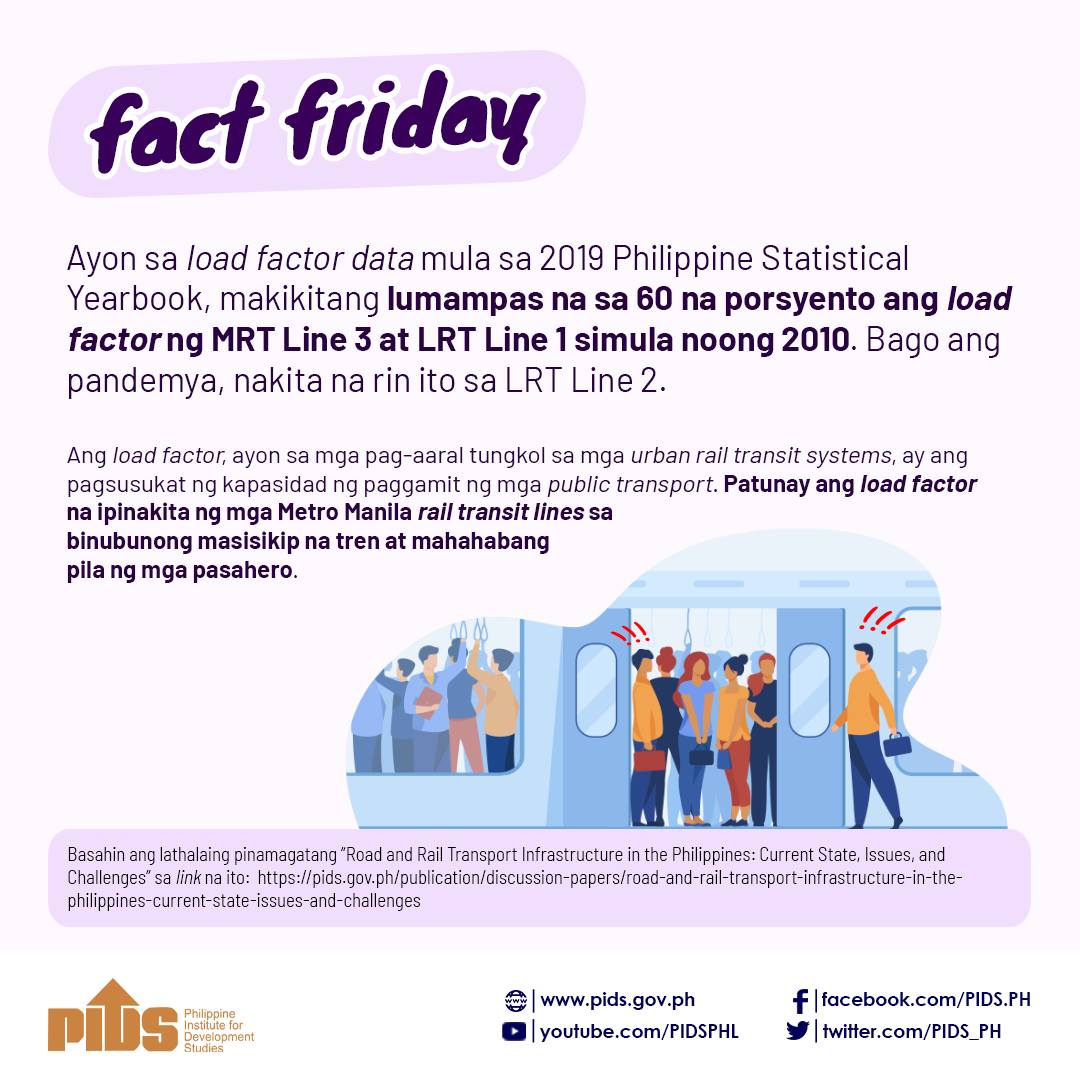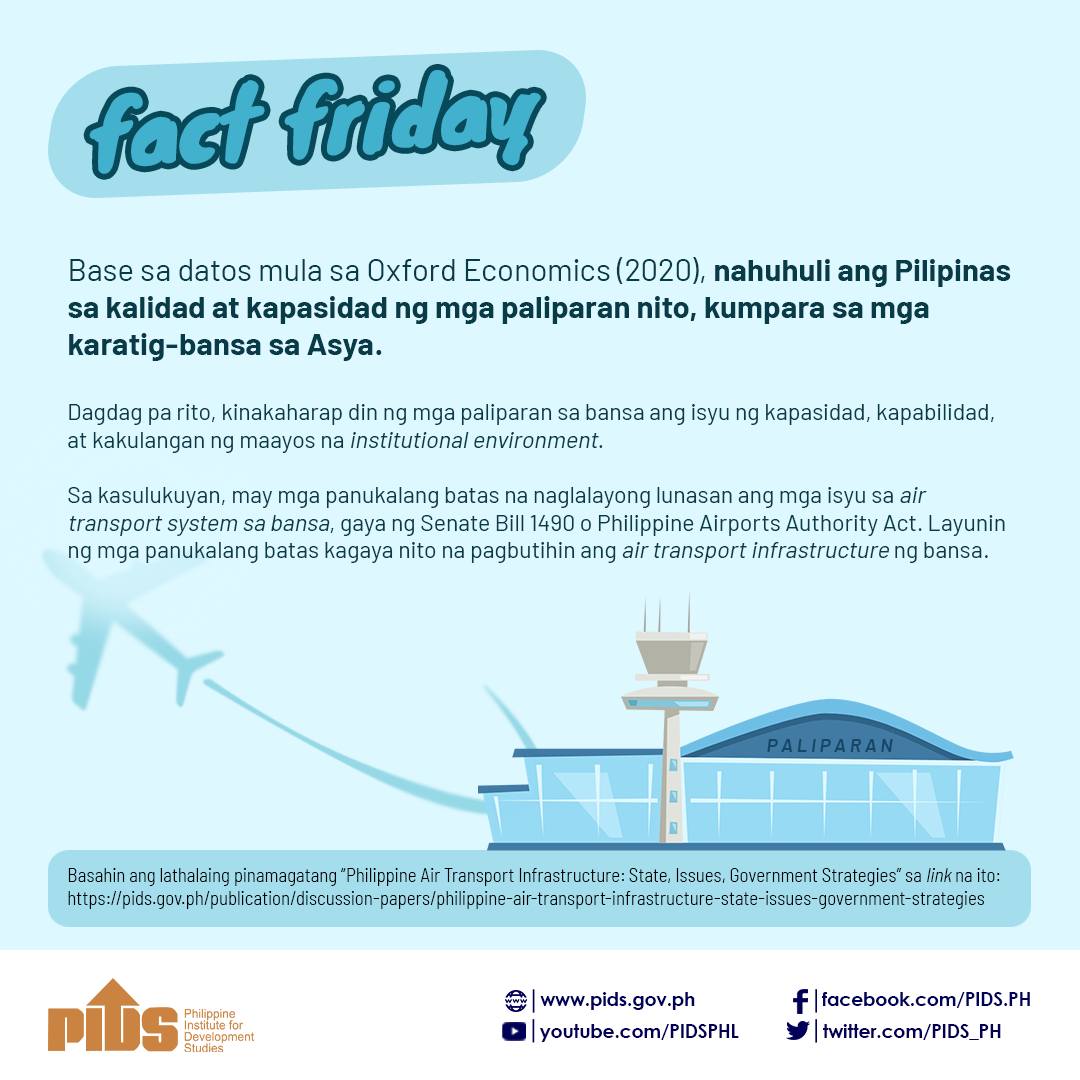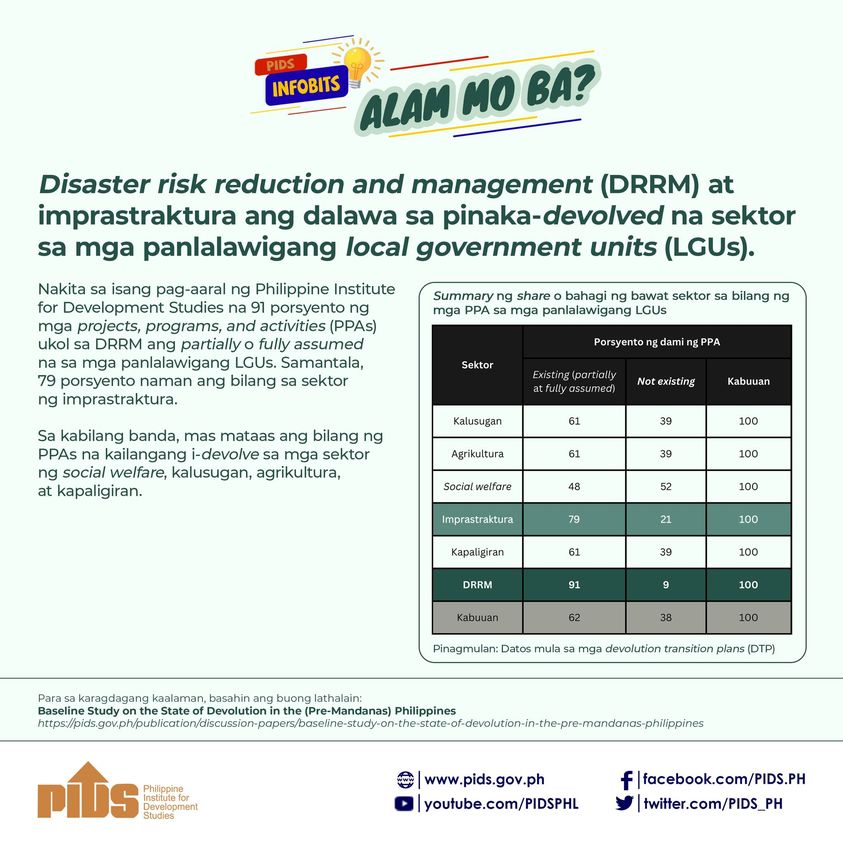The National Economic and Development Authority (Neda) remains confident that the shift to a federal form of government will not derail the Duterte administration’s massive infrastructure program.
Socioeconomic Planning Secretary Ernesto M. Pernia told reporters on Wednesday that shifting to federalism may take two or three years more. By that time, many infrastructure projects would have already been completed.
“If at all, federalism will not be implemented in the next two, three years, toward the end of the administration. So I don’t think that would be a stumbling block [to ‘Build, Build, Build’]. It will take time to implement federalism; lots of preparations are needed,” Pernia said.
As of June 2017, the Neda estimated that 53 of its 75 flagship projects would cost P1.58 trillion. The other 22 projects still do not have cost estimates.
This is the reason the government put together a list of 70 projects in the “Build, Build, Build” program. According to the government’s web site, the Build, Build, Build consist of a mixed bag of projects ranging from roads, bridges, railways, bus-rapid transits, to the Philippines’s first subway.
Pernia also said the Neda is still calculating the impact of federalism on the economy. This, he said, is the reason they could not yet give a definite answer on its economic ramifications.
However, Philippine Institute for Development Studies (PIDS) senior research fellow Rosario G. Manasan said that from a public finance perspective, shifting to federalism may lead to higher costs, especially if tax assignment and expenditure distribution are not done properly.
Manasan added the fiscal gap in regions could reach as much as P1.09 trillion, or 84 percent of the total expenditure needs of subnational governments. This also represents some 57 percent of total revenues from national governmental internal revenue taxes in 2017, or 7.5 percent of GDP.
With the increase in regional government functions, subnational governments will be hard-pressed to increase their revenues. According to Manasan’s calculations, subnational governments can only finance P213.59 billion of the total needs of P1.3 trillion.
Manasan earlier told the BusinessMirror that the computation is based on her proposed shared and exclusive functions of the federal and subnational government. The estimates specifically cover the shared functions that subnational governments need to finance under a federalist regime.
She said that while most the exclusive functions of the subnational government are already being financed currently through the Local Government Code provisions concerning devolved services and the Internal Revenue Allotment, the shared functions under a federal form of government may prove to be costly. Shared powers in the context of subnational governments, Manasan added, include mostly the delivery of services, such as infrastructure, education and agriculture, to name a few which have since been financed nationally.
No funds for Cha-cha
Palace-backed plans to tinker with the 1987 Constitution to shift to a federal form of government, a move seen extending terms of incumbent Executive officials, as well as senators and congressmen during the transition, is not likely to prosper for lack of funds.
Sen. Francis G. Escudero raised this scenario on Wednesday as he bucked talks of any referendum on Charter change (Cha-cha) simultaneous with the barangay elections on May 14 or even in the 2019 elections, pointing out that “there is no fund for any plebiscite for 2018.”
“There is no way to hold that together with the 2018 elections because it [referendum to ratify Charter changes] does not come without a cost and, given the very little time to prepare for it, that plan is already down the drain,” Escudero said.
The senator asserted that holding a national referendum to ratify proposed Charter changes “can only be funded through a request for supplemental budget that must conform with the Supreme Court ruling” on the use of savings.
“Any budget request must be approved by the two chambers of Congress, and any realignment of fund must not exceed the original allocation for the item needing supplemental budget,” Escudero added.
He said funding for any plan to hold a referendum to ratify proposed amendments in the 1987 Constitution must be included in the General Appropriations Act, stressing that this “must also be approved by the Senate.”
“I have no idea if the DBM [Department of Budget and Management] will include that in their 2019 budget proposal,” the senator said, adding: “We will see the administration’s intention regarding this matter based on the budget they will submit for 2019.”
In a statement, Escudero took issue with the House of Representatives’ position that congressmen could proceed to convene Congress into a constituent assembly to tinker with the Charter without the Senate.
He said congressmen themselves “contravened” the basis for such move, citing their adoption of House Concurrent Resolution 9 seeking to convene Congress into a constituent assembly to amend the Constitution.
“The title in itself, ‘concurrent resolution,’ is already an admission that any proposal or move to amend the Constitution necessitates the separate votes of both houses of Congress,” the senator said.
Escudero explained that, “before we even get to the question of voting jointly or separately, in the process of passing the concurrent resolution to convene [the two chambers of Congress] as a constituent assembly, it is already clear in the title concurrent resolution that this would be questionable if the Charter changes are approved without the Senate.”
SC decision
The leadership of the House of Representatives on Wednesday assured the public that it will respect whatever decision the Supreme Court (SC) will make on its move to propose amendments to the 1987 Constitution without the Senate’s participation.
Speaker Pantaleon D. Alvarez, in an interview, said he would only listen to the High Court on the legality of their decision to proceed amending the Charter sans its counterpart in the upper house.
“That’s why we have the Judiciary. We will abide by whatever the SC decides. For instance, if there is some disagreement, they [SC justices] will be the ones [who will give the ruling],” Alvarez said.
Amid the looming deadlock between the House of Representatives and the Senate in terms of the manner of voting to amend the 1987 Constitution, Alvarez last Monday said the lower chamber has started amending the Charter.
He added the lower chamber could do Charter change alone, even without the Senate.
Senator said voting should be done separately because the greater number of the lower chamber would practically drown out the Senate position.
According to Alvarez, the 1987 Constitution was clear on voting jointly to propose amendments or revisions to the Charter.
According to Alvarez, as long as the required three-fourths vote of Congress is met—based on the combined number of the Senate and the House—proposed Charter amendments may be considered and adopted even without the participation of the upper chamber.
“Any amendment to or revision to this Constitution may be proposed by Congress upon a vote of three-fourths of all its members, or 237 lawmakers,” he said. Section 1, Article VII of the Constitution provides that “any amendment to, or revision of, this Constitution may be proposed by: (1) The Congress, upon a vote of three-fourths of all its Members.”
He also admitted that disagreement over this procedure may be brought before the SC for resolution.
Socioeconomic Planning Secretary Ernesto M. Pernia told reporters on Wednesday that shifting to federalism may take two or three years more. By that time, many infrastructure projects would have already been completed.
“If at all, federalism will not be implemented in the next two, three years, toward the end of the administration. So I don’t think that would be a stumbling block [to ‘Build, Build, Build’]. It will take time to implement federalism; lots of preparations are needed,” Pernia said.
As of June 2017, the Neda estimated that 53 of its 75 flagship projects would cost P1.58 trillion. The other 22 projects still do not have cost estimates.
This is the reason the government put together a list of 70 projects in the “Build, Build, Build” program. According to the government’s web site, the Build, Build, Build consist of a mixed bag of projects ranging from roads, bridges, railways, bus-rapid transits, to the Philippines’s first subway.
Pernia also said the Neda is still calculating the impact of federalism on the economy. This, he said, is the reason they could not yet give a definite answer on its economic ramifications.
However, Philippine Institute for Development Studies (PIDS) senior research fellow Rosario G. Manasan said that from a public finance perspective, shifting to federalism may lead to higher costs, especially if tax assignment and expenditure distribution are not done properly.
Manasan added the fiscal gap in regions could reach as much as P1.09 trillion, or 84 percent of the total expenditure needs of subnational governments. This also represents some 57 percent of total revenues from national governmental internal revenue taxes in 2017, or 7.5 percent of GDP.
With the increase in regional government functions, subnational governments will be hard-pressed to increase their revenues. According to Manasan’s calculations, subnational governments can only finance P213.59 billion of the total needs of P1.3 trillion.
Manasan earlier told the BusinessMirror that the computation is based on her proposed shared and exclusive functions of the federal and subnational government. The estimates specifically cover the shared functions that subnational governments need to finance under a federalist regime.
She said that while most the exclusive functions of the subnational government are already being financed currently through the Local Government Code provisions concerning devolved services and the Internal Revenue Allotment, the shared functions under a federal form of government may prove to be costly. Shared powers in the context of subnational governments, Manasan added, include mostly the delivery of services, such as infrastructure, education and agriculture, to name a few which have since been financed nationally.
No funds for Cha-cha
Palace-backed plans to tinker with the 1987 Constitution to shift to a federal form of government, a move seen extending terms of incumbent Executive officials, as well as senators and congressmen during the transition, is not likely to prosper for lack of funds.
Sen. Francis G. Escudero raised this scenario on Wednesday as he bucked talks of any referendum on Charter change (Cha-cha) simultaneous with the barangay elections on May 14 or even in the 2019 elections, pointing out that “there is no fund for any plebiscite for 2018.”
“There is no way to hold that together with the 2018 elections because it [referendum to ratify Charter changes] does not come without a cost and, given the very little time to prepare for it, that plan is already down the drain,” Escudero said.
The senator asserted that holding a national referendum to ratify proposed Charter changes “can only be funded through a request for supplemental budget that must conform with the Supreme Court ruling” on the use of savings.
“Any budget request must be approved by the two chambers of Congress, and any realignment of fund must not exceed the original allocation for the item needing supplemental budget,” Escudero added.
He said funding for any plan to hold a referendum to ratify proposed amendments in the 1987 Constitution must be included in the General Appropriations Act, stressing that this “must also be approved by the Senate.”
“I have no idea if the DBM [Department of Budget and Management] will include that in their 2019 budget proposal,” the senator said, adding: “We will see the administration’s intention regarding this matter based on the budget they will submit for 2019.”
In a statement, Escudero took issue with the House of Representatives’ position that congressmen could proceed to convene Congress into a constituent assembly to tinker with the Charter without the Senate.
He said congressmen themselves “contravened” the basis for such move, citing their adoption of House Concurrent Resolution 9 seeking to convene Congress into a constituent assembly to amend the Constitution.
“The title in itself, ‘concurrent resolution,’ is already an admission that any proposal or move to amend the Constitution necessitates the separate votes of both houses of Congress,” the senator said.
Escudero explained that, “before we even get to the question of voting jointly or separately, in the process of passing the concurrent resolution to convene [the two chambers of Congress] as a constituent assembly, it is already clear in the title concurrent resolution that this would be questionable if the Charter changes are approved without the Senate.”
SC decision
The leadership of the House of Representatives on Wednesday assured the public that it will respect whatever decision the Supreme Court (SC) will make on its move to propose amendments to the 1987 Constitution without the Senate’s participation.
Speaker Pantaleon D. Alvarez, in an interview, said he would only listen to the High Court on the legality of their decision to proceed amending the Charter sans its counterpart in the upper house.
“That’s why we have the Judiciary. We will abide by whatever the SC decides. For instance, if there is some disagreement, they [SC justices] will be the ones [who will give the ruling],” Alvarez said.
Amid the looming deadlock between the House of Representatives and the Senate in terms of the manner of voting to amend the 1987 Constitution, Alvarez last Monday said the lower chamber has started amending the Charter.
He added the lower chamber could do Charter change alone, even without the Senate.
Senator said voting should be done separately because the greater number of the lower chamber would practically drown out the Senate position.
According to Alvarez, the 1987 Constitution was clear on voting jointly to propose amendments or revisions to the Charter.
According to Alvarez, as long as the required three-fourths vote of Congress is met—based on the combined number of the Senate and the House—proposed Charter amendments may be considered and adopted even without the participation of the upper chamber.
“Any amendment to or revision to this Constitution may be proposed by Congress upon a vote of three-fourths of all its members, or 237 lawmakers,” he said. Section 1, Article VII of the Constitution provides that “any amendment to, or revision of, this Constitution may be proposed by: (1) The Congress, upon a vote of three-fourths of all its Members.”
He also admitted that disagreement over this procedure may be brought before the SC for resolution.

